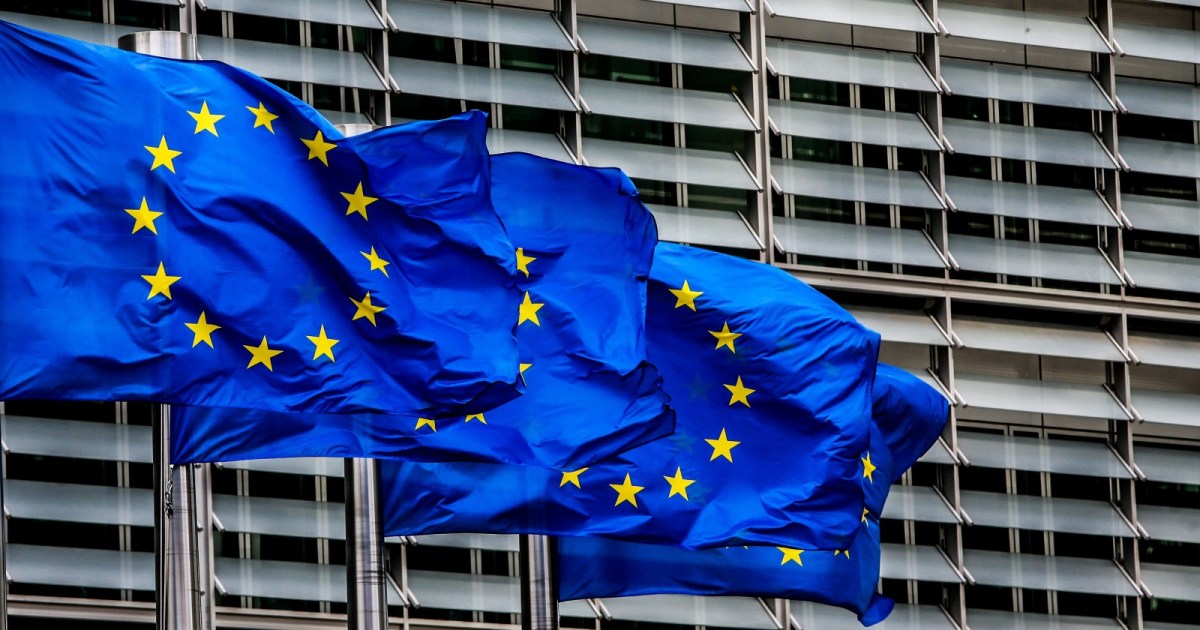Today, Monday in Brussels, foreign ministers of the European Union countries will discuss mediation efforts to resolve the US-Iranian dispute over the nuclear deal, while Tehran confirmed that it is studying a European proposal regarding Washington's participation in an upcoming meeting of the signatories to the nuclear deal.
European Union foreign policy and security official Josep Borrell said, "Intense diplomatic contacts are taking place regarding the nuclear deal with Iran, involving many parties, including the United States."
In statements before the start of a meeting of European Union foreign ministers in Brussels, Borrell stressed that these contacts aim to discuss the possibility of the United States returning to the nuclear agreement, which he said would urge Tehran to fully adhere to the requirements of the agreement.
US Secretary of State Anthony Blinken is scheduled to join the meeting via video technology.
This meeting comes after Iran called on the European Union countries to play a mediating role with the new US administration regarding the nuclear deal.
The European Union seeks to ensure that the United States returns to the agreement, and that Iran fully implements its obligations in this regard.
Al-Jazeera correspondent in Brussels, Abdullah Al-Shami, said, "Borrell wanted to send reassuring messages by saying that there would be strenuous work to persuade the United States to return to the nuclear agreement in order to encourage the Iranians to abide by all the terms of the nuclear agreement signed in 2015."
The European moves coincide with the announcement by the International Atomic Energy Agency that it had reached a temporary technical agreement with Iran regarding inspections of Iranian nuclear facilities.
Under the agreement, the IAEA will continue the necessary inspections for a period of 3 months, and Tehran will also continue to implement the comprehensive safeguards agreement, which allows monitoring of its declared nuclear facilities.
Hold on to abolish penalties
For its part, the Iranian Foreign Ministry announced that it is studying a European request for American participation in an upcoming meeting of the signatories of the nuclear agreement.
Iranian Foreign Ministry spokesman Saeed Khatibzadeh said that his country will stop working on the additional annex to the Treaty on the Limitation of Nuclear Weapons from tomorrow, but will continue cooperation with the International Atomic Energy Agency through the interim agreement reached yesterday, and it will be implemented within the framework of the Iranian parliament's decision.
Zadeh stressed that the Biden administration must make the decision whether it wants to continue its failed maximum pressure policy or not, calling on Washington to return to the agreement and lift all sanctions imposed by the administration of former US President Donald Trump on Iran.
And Iranian Foreign Minister Mohammad Javad Zarif said earlier that the United States of America, which "violated the nuclear agreement," should take "corrective measures," stressing that Tehran would respond to this immediately and positively.
He also stressed that it is possible to start talks with Washington, and to quickly back down from his country's commitment to the nuclear deal, if the rest of the parties abide by the agreement.
According to Al-Jazeera correspondent in Tehran, Suhaib Al-Asa, Iran is proceeding with the step to suspend the additional protocol.
This means stopping international inspections of its nuclear facilities until the US sanctions are lifted.
He revealed that Iran had agreed with the IAEA to place cameras in all its nuclear facilities for a period of 3 months, but Tehran would not hand over the camera recordings to the agency unless Washington lifted the economic sanctions.
The American position
On the other hand, US National Security Adviser Jake Sullivan confirmed on Sunday that his country is ready to reach a binding agreement with Iran if it returns to its obligations.
Sullivan said - in a press statement - that Iran has not yet responded to the call for negotiations, and that it is "currently in isolation and not the United States," adding that "the ball is now in its court."
The US official stressed that the administration of President Joe Biden believes that diplomacy is the best way to prevent Tehran from achieving a nuclear bomb.
He added that Tehran has refused to cooperate with the IAEA in the work it is trying to do to ensure that Iran's program is not used for weapons purposes.
In turn, Al-Jazeera correspondent in Washington, Nasser al-Husseini, indicated that there is silence and ambiguity in the US position in front of the Iranian and European statements, and it seems that the US administration wants to take the time to study what should be done in front of the Iranians in this crisis.
He added that there are clear messages that President Joe Biden sent to the Iranians, and Washington does not want Tehran to understand them as a sign of weakness in the American position, and therefore in the latest American statements, the white whites confirm that they are ready to return to negotiations on the condition that Iran return to its obligations within the nuclear agreement, and that it releases American prisoners.

